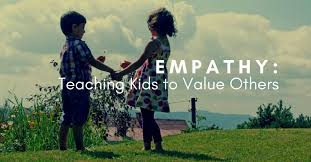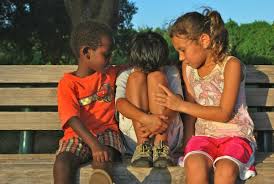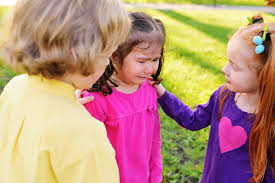
INDIANA— Empathy remains an essential quality that promotes genuine human connection and understanding in a fast-paced and technology-driven world. It is the capacity to put oneself in another person’s shoes, recognizing and understanding their emotions, experiences, and perspectives.

The ability to understand and share another person’s feelings is what makes us unique and compassionate beings. It is pivotal in fostering healthy relationships, resolving conflicts, and promoting a more compassionate society.
Psychologists have identified three components of empathy: cognitive, emotional, and compassionate. Cognitive empathy involves understanding another person’s thoughts and emotions, even if one does not personally experience them. It requires active listening, open-mindedness, and a willingness to consider different perspectives.

Emotional empathy refers to feeling the same emotion as another person, often leading to shared experience and resonance with their feelings. It enables individuals to offer comfort and support while validating the other person’s emotions.
Lastly, there is compassionate empathy, which combines cognitive and emotional empathy. It motivates individuals to take action to alleviate others’ suffering and fuels acts of kindness, selflessness, and social advocacy.

Empathy has far-reaching benefits on both an individual and societal level. Here are a few key reasons why empathy is essential:
1. Building Stronger Relationships: Empathy forms the cornerstone of solid interpersonal connections. By actively listening and understanding others, we can gain trust, foster teamwork, and create meaningful relationships based on mutual respect and understanding.
2. Conflict Resolution: Empathy helps resolve conflicts by better understanding others’ perspectives. It encourages constructive dialogue and problem-solving.
3. Enhancing Emotional Intelligence: Empathy is closely linked to emotional intelligence, which involves recognizing, understanding, and managing emotions.
4. Fostering Inclusivity and Tolerance: Empathy allows us to embrace diversity and appreciate different cultures, beliefs, and backgrounds. It promotes inclusivity, tolerance, and respect for individual differences by dismantling stereotypes and biases.
5. Creating Social Change: Empathy fuels acts of kindness and compassion, inspiring individuals to make a positive difference in society. It drives philanthropy, volunteering, and social activism, paving the way for a more equitable and empathetic world.
So, how do we become more empathetic and teach our children to be empathetic? Empathy is a skill that can be nurtured and developed. Pay attention to others’ words, body language, and emotions. Practice active listening by being fully present in conversations and showing genuine interest.

Try to understand situations from others’ viewpoints, considering their beliefs, values, and experiences. This promotes empathy and helps bridge the gap between different perspectives. We can read more diverse narratives and stories and watch more diverse movies. Doing so will broaden our understanding of others’ experiences and help us cultivate empathy. We also need to practice more self-reflection. We need to make sure we are aware of our biases, assumptions, and experiences to approach others with an open mind.
Empathy is a powerful force that promotes understanding, strengthens relationships, and fosters social change. It is an essential skill that can be developed through active listening, perspective-taking, and self-reflection. Let us embrace empathy to bridge divides, build connections, and make the world a little brighter for one another.

Ashley Lingafelter, MSW, LSW, is a Youth First Mental Health Professional at North Elementary School in Posey County. Youth First, Inc., is a nonprofit dedicated to strengthening youth and families. Youth First provides over 100 highly trained mental health professionals (primarily master’s level social workers), prevention programs, parent engagement coordinators, and bilingual support personnel to 126 schools across 14 Indiana counties. Over 52,000 youth and families yearly are served by Youth First’s school-based social work and community programs that promote mental health, prevent substance misuse, and maximize student success. To learn more about Youth First, visit youthfirstinc.org or call 812-421-8336.



